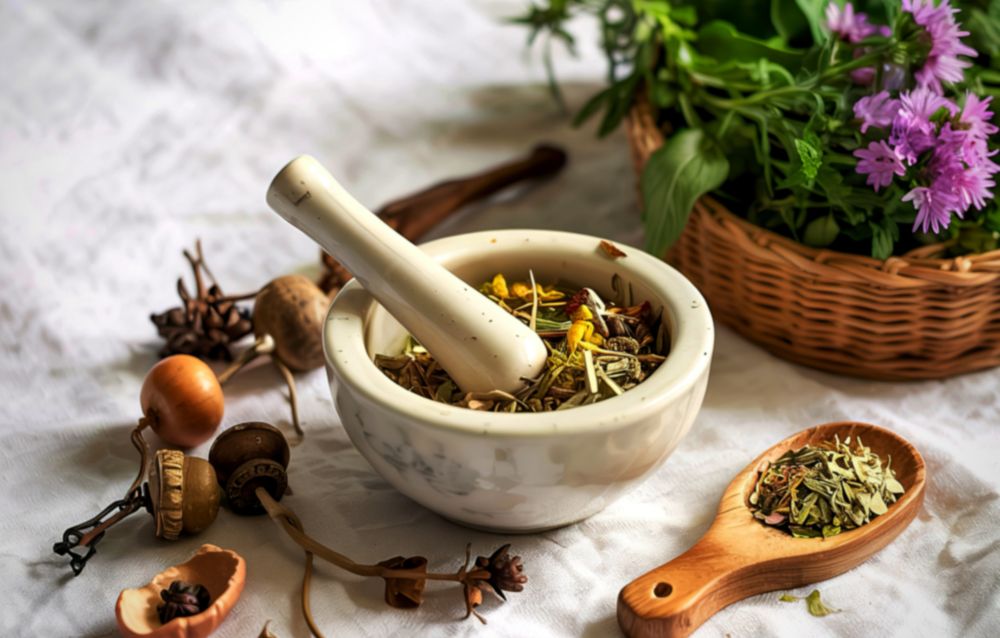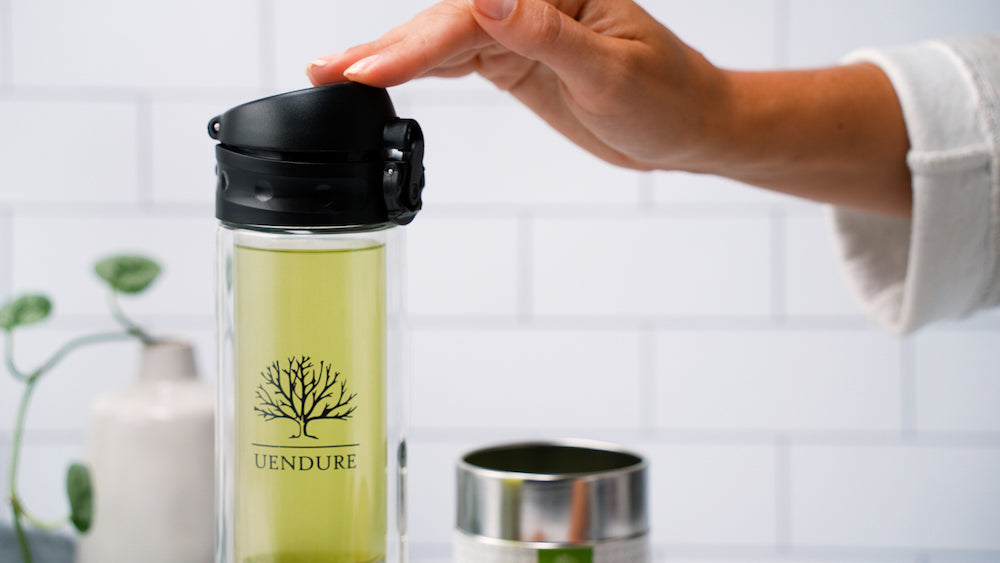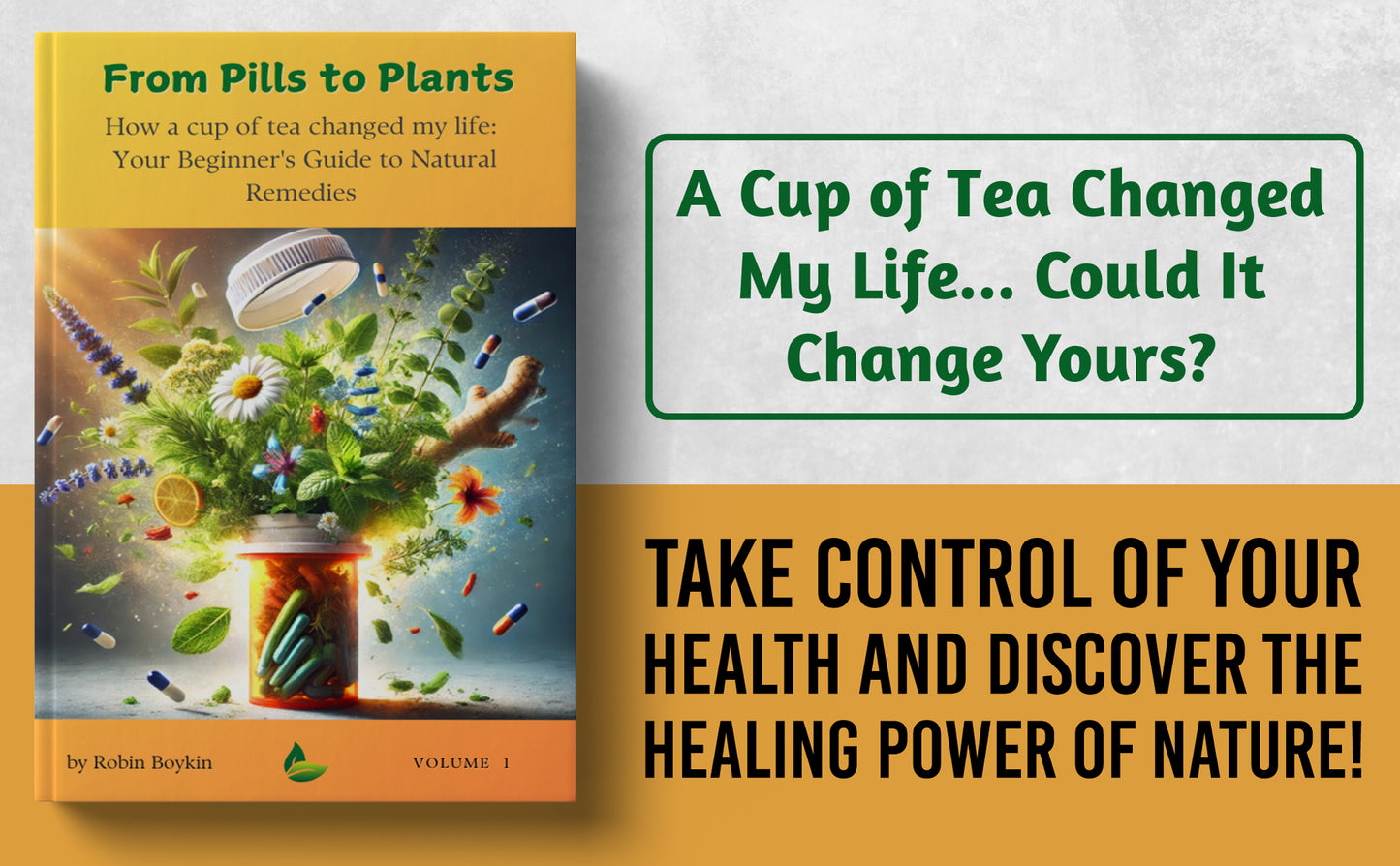Save 15% when you buy the Original Bottle Bundle!

Menopause represents a significant transition in a woman's life - one that brings physiological changes often accompanied by uncomfortable symptoms. While conventional hormone replacement therapy remains a common treatment approach, many women seek natural alternatives to manage their symptoms. This comprehensive guide delves into evidence-supported natural remedies that may help ease the menopausal journey.
Understanding Menopause
Menopause typically occurs between ages 45 and 55, marking the end of menstruation and reproductive capability. This transition happens when the ovaries gradually decrease their production of estrogen and progesterone - hormones that regulate menstruation and influence numerous bodily functions.
The resulting hormonal fluctuations can trigger various symptoms, including:
- Hot flashes and night sweats
- Sleep disturbances
- Mood changes
- Vaginal dryness
- Decreased bone density
- Cognitive changes
- Reduced metabolism
While each woman's experience differs in intensity and duration, approximately 75% of women report experiencing hot flashes, making them the most common symptom seeking treatment.
Plant-Based Therapies
Phytoestrogens: Nature's Hormone Modulators
Phytoestrogens, which are plant compounds with estrogen-like properties, have garnered significant attention for their potential to alleviate menopausal symptoms.
Soy Isoflavones
Research from the North American Menopause Society suggests that soy foods containing isoflavones (particularly genistein and daidzein) may reduce hot flash frequency by 11-45% compared to placebo.
"Consuming 50-90mg of isoflavones daily - equivalent to approximately 2-4 servings of traditional soy foods - appears most effective," notes a 2021 meta-analysis published in the Journal of the American Heart Association.
Incorporate these soy sources into your diet:
- Edamame (1 cup = ~50mg isoflavones)
- Tempeh (1/2 cup = ~40mg isoflavones)
- Tofu (3oz = ~25mg isoflavones)
- Unsweetened soy milk (1 cup = ~30mg isoflavones)
Flaxseeds
Rich in lignans (another type of phytoestrogen), flaxseeds have demonstrated modest benefits for hot flashes. A clinical trial published in the Journal of the Society for Integrative Oncology found that consuming 40g of crushed flaxseed daily reduced hot flash frequency by approximately 50%.
Adaptogens
Certain herbs classified as adaptogens help the body adapt to stress and may assist in hormonal regulation.
Black Cohosh (Actaea racemosa)
Perhaps the most studied herbal remedy for menopause symptoms, black cohosh has shown varying degrees of efficacy. A systematic review in the American Journal of Medicine found that black cohosh extracts may reduce hot flash frequency by 26% compared to placebo.
The typical recommended dosage is 40-80mg of standardized extract daily for up to six months. However, women with liver disorders should avoid this herb due to rare reports of liver toxicity.
👉👉 Our menopause relief tea has this, and other beneficial herbs!
Maca Root (Lepidium meyenii)
This Peruvian adaptogen has demonstrated promise for improving various aspects of menopausal well-being. A 2008 study published in Menopause found that postmenopausal women taking 3.5g of maca daily for six weeks experienced significant reductions in psychological symptoms and frequency of hot flashes compared to placebo.
Lifestyle Approaches
While supplements and herbal remedies can be beneficial, lifestyle modifications provide essential support during the menopausal transition.
Nutrition
Have you considered how your daily diet might influence your menopausal symptoms? Research increasingly suggests that anti-inflammatory eating patterns may mitigate various symptoms.
The Mediterranean diet, rich in vegetables, fruits, whole grains, lean proteins, and healthy fats, has been associated with reduced hot flash severity and frequency. A study published in the American Journal of Clinical Nutrition found that women following this eating pattern reported 20% fewer hot flashes than those consuming a Western diet high in processed foods.
Key nutritional strategies include:
- Prioritizing omega-3 fatty acids from cold-water fish, walnuts, and flaxseeds
- Increasing calcium and vitamin D intake to support bone health
- Limiting triggers like caffeine, alcohol, and spicy foods that may exacerbate hot flashes
- Maintaining adequate hydration (8-10 glasses of water daily)
Mind-Body Practices
The connection between stress and worsening menopausal symptoms is well-established. Stress triggers cortisol release, which can further disrupt hormonal balance during this sensitive transition.
Mindfulness Meditation
A randomized controlled trial published in Menopause: The Journal of The North American Menopause Society demonstrated that women practicing mindfulness meditation for 20 minutes daily experienced a 40% reduction in hot flash intensity over 8 weeks.
Yoga
The practice of yoga combines physical postures, breathwork, and meditation - a powerful combination for menopause symptom relief. A 2018 review in the Journal of Evidence-Based Integrative Medicine found that regular yoga practice (3-5 sessions weekly) significantly reduced hot flashes, night sweats, and sleep disturbances while improving psychological well-being.
Cognitive Behavioral Therapy (CBT)
This therapeutic approach helps reframe perceptions of menopausal symptoms. The Mayo Clinic reports that women who undergo CBT sessions experience significantly reduced hot flash-related distress, even when the actual frequency of hot flashes remains unchanged.
Targeted Supplements: Beyond Herbs
Several micronutrients and supplements show promise for addressing specific menopausal concerns.
Bone Health Support
As estrogen levels decline, bone density loss accelerates. A proactive approach includes:
- Calcium: 1,200mg daily (food sources plus supplements if needed)
- Vitamin D: 800-1,000 IU daily (with blood level monitoring recommended)
- Vitamin K2: Emerging research suggests 90-180mcg daily may help direct calcium to bones rather than arteries
Sleep Enhancement
For the estimated 40-60% of menopausal women struggling with sleep disturbances:
- Magnesium: 300-400mg before bedtime may improve sleep quality and reduce night sweats
- Melatonin: Low-dose (0.5-3mg) may help regulate sleep-wake cycles disrupted during menopause
- L-theanine: 200mg has shown benefits for reducing anxiety and improving sleep quality
Creating Your Personalized Approach
Menopause is highly individualized, requiring a customized strategy. Consider these guiding principles when developing your plan:
-
Start with foundations: Prioritize anti-inflammatory nutrition, regular movement, stress management, and sleep hygiene before adding supplements
-
Introduce one remedy at a time: This allows you to identify which interventions provide benefit while minimizing potential interactions
-
Document your experience: Keep a symptom journal tracking frequency and intensity of symptoms alongside interventions
-
Partner with healthcare providers: Integrative physicians, naturopathic doctors, or functional medicine practitioners can provide guidance specific to your health history
-
Remain patient and flexible: Natural approaches often require 4-12 weeks to demonstrate significant benefits
When to Seek Medical Support
While natural remedies can be effective for many women, certain circumstances warrant professional medical evaluation:
- Extremely heavy or irregular bleeding during perimenopause
- Severe hot flashes that significantly disrupt daily functioning
- Symptoms of depression or anxiety that interfere with quality of life
- Rapid bone loss as determined by bone density testing
- Vaginal changes causing significant discomfort or affecting intimacy
Remember that natural approaches and conventional treatments aren't mutually exclusive. Many women benefit from an integrative approach that combines the best of both worlds under proper medical supervision.
You can start with some of our menopause relief tea.




583aqj
1923qs